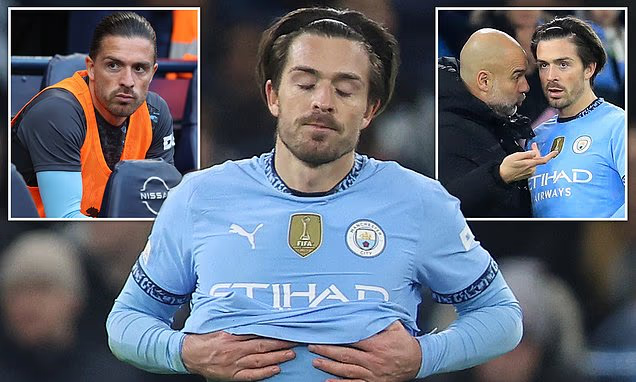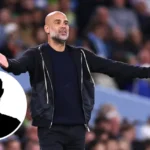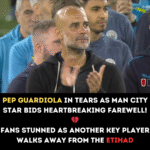Jack Grealish is gunning for a new challenge after Man City’s Club World Cup axe

The 2025 summer transfer window presents a pivotal moment for Premier League clubs and their players. Running from June 16 to September 1, this extended period offers teams the opportunity to reassess their squads, address weaknesses, and prepare for the challenges ahead. For players finding themselves on the periphery or seeking new challenges, this window represents a crucial juncture in their careers.
The Current Landscape
The Premier League has never been more competitive, with the gap between traditional “big six” clubs and the rest continuing to narrow. This increased competitiveness has created a dynamic transfer market where players at all levels are reassessing their situations. From established stars seeking new challenges to promising talents requiring regular playing time, the summer of 2025 is shaping up to be one of significant movement.
The FIFA Club World Cup has added another layer of complexity to this transfer window. While some clubs focus on international competition, others have more time to conduct business and plan for the domestic season. This disparity in schedules has created unique opportunities and challenges for both clubs and players.
Manchester City: Jack Grealish’s Crossroads
Perhaps no player exemplifies the current transfer uncertainty more than Jack Grealish. The English winger, who made a £100 million move from Aston Villa to Manchester City in 2021, finds himself at a career crossroads. Despite being part of a supremely successful City squad that has dominated English football, Grealish has struggled to establish himself as an undisputed starter under Pep Guardiola.
The exclusion from City’s Club World Cup squad has only intensified speculation about his future. For a player of Grealish’s caliber and ambition, sitting on the sidelines during crucial competitions is unacceptable. At 29, he recognizes that his prime years are finite, and the need for regular, meaningful football has become paramount.
Grealish’s situation reflects a broader trend in modern football where even talented players at successful clubs can find themselves surplus to requirements. His technical ability, creativity, and proven Premier League pedigree make him an attractive proposition for clubs seeking to add flair and unpredictability to their attacks. The question now is whether City will be willing to let such a significant investment walk away, and which clubs can both afford his wages and offer the platform he desires.
Chelsea: The Reserve Team Dilemma
Chelsea’s squad bloat has become legendary in recent years, with the club accumulating talent faster than they can integrate players into the first team. Several high-profile signings find themselves trapped in a cycle of loan moves and reserve team appearances, their careers stagnating despite their undeniable ability.
The club’s approach of stockpiling young talent has created a bottleneck that benefits no one. Players who should be developing their skills in competitive environments instead find themselves fighting for scraps of playing time or languishing in development squads. This hoarding strategy not only wastes individual talent but also creates financial inefficiencies that even a club of Chelsea’s resources cannot sustain indefinitely.
For the unnamed Chelsea star referenced in the original report, the summer of 2025 represents perhaps the last opportunity to salvage what could be a promising career. The longer a player remains out of regular competitive action, the more their stock falls and the harder it becomes to attract interest from top-level clubs.
Arsenal: Oleksandr Zinchenko’s Unfulfilled Potential
Oleksandr Zinchenko’s move to Arsenal from Manchester City was initially viewed as a shrewd piece of business. The Ukrainian’s versatility, allowing him to play both left-back and in midfield, seemed perfect for Mikel Arteta’s tactical flexibility. However, his time at the Emirates has been characterized by inconsistency and adaptation struggles.
While Zinchenko has shown flashes of his quality, particularly in his distribution and technical ability, he has never fully convinced as a regular starter. Arsenal’s pursuit of alternative options in his positions suggests that the club may be open to offers. For Zinchenko, a move could provide the fresh start needed to rediscover the form that made him a valuable squad player at City.
The defender’s international experience with Ukraine adds another dimension to his appeal. His leadership qualities and big-game experience could prove invaluable to a club looking to establish itself in European competition or push for domestic honors.
Aston Villa: Tyrone Mings and the Captain’s Burden
Tyrone Mings’ situation at Aston Villa is particularly complex. As club captain, he carries significant responsibility and emotional connection to the club. However, football is ultimately about performance levels, and Mings has found his position under threat from newer signings and tactical evolution.
Villa’s transformation under Unai Emery has been remarkable, with the club establishing itself as a genuine force in European competition. This success has naturally raised the bar for all players, and those who cannot adapt to higher standards risk being left behind. Mings’ defensive capabilities have been questioned at times, particularly in high-pressure situations against elite opposition.
The captain’s armband often complicates transfer situations, as clubs are reluctant to lose leaders and players feel obligated to stay. However, if Villa’s ambitions continue to grow and the defensive standards required increase accordingly, Mings may find that his best interests lie elsewhere. A move to a club where his experience and leadership qualities would be more valued could benefit all parties.
Tottenham: The Thomas Frank Revolution
The appointment of Thomas Frank as Tottenham’s new manager has created uncertainty throughout the squad. Frank’s move from Brentford represents a significant step up, and his tactical preferences may not align with the current personnel at his disposal.
Frank’s success at Brentford was built on specific principles: high-intensity pressing, direct play, and maximizing the potential of every squad member. Not every Tottenham player will fit this mold, and some may find themselves surplus to requirements as Frank looks to implement his vision.
The Danish manager’s preference for players who buy into his methods completely means that those who cannot adapt quickly may find their futures elsewhere. This transition period could see several established Tottenham players seeking moves to clubs where their skills are better appreciated.
Market Dynamics and Financial Considerations
The modern transfer market is increasingly driven by Financial Fair Play regulations and sustainability concerns. Clubs can no longer spend without consequence, making every transfer decision more crucial. This environment favors players who can demonstrate immediate impact and value for money.
For players seeking moves, the financial landscape means they may need to accept reduced wages or move to clubs they might not have considered previously. The days of unlimited spending are largely over, replaced by a more strategic approach to squad building.
International Considerations
The upcoming international tournaments and World Cup qualifying campaigns add another layer to transfer considerations. Players need regular club football to maintain their international prospects, making summer moves even more critical for those currently out of favor.
National team managers are increasingly reluctant to select players who aren’t playing regularly at club level. This reality puts additional pressure on players to make brave decisions about their futures, even if it means leaving comfortable situations at big clubs.
The Youth Development Factor
Many clubs are prioritizing youth development and academy graduates, creating additional pressure on established players. Teams are increasingly willing to give opportunities to younger, hungrier players who cost less and offer greater long-term value.
This trend particularly affects players in their late twenties and early thirties who may have previously relied on experience to maintain their positions. The modern game’s emphasis on energy, pace, and pressing requires constant physical conditioning that naturally favors younger players.
Managerial Preferences and Tactical Evolution
Football’s tactical evolution continues to accelerate, with managers implementing increasingly specific systems that require particular types of players. Those who don’t fit these tactical requirements, regardless of their overall quality, find themselves marginalized.
This specialization means that a player who is excellent in one system may be completely unsuited to another. The summer transfer window allows both players and managers to find better fits, maximizing the potential of all parties involved.
Conclusion: The Summer of Decision
The 2025 summer transfer window represents a moment of truth for many Premier League players. Those content to collect wages while playing limited football will find their careers stagnating, while those brave enough to seek new challenges could revitalize their prospects.
For clubs, the window offers the chance to refresh squads and remove deadwood that has accumulated over previous seasons. The most successful teams will be those that can identify which players truly want to be there and which are simply going through the motions.
Jack Grealish’s situation at Manchester City perfectly encapsulates the modern footballer’s dilemma: accept reduced status at a successful club or take the risk of moving to secure regular football. His decision, along with those of many others, will shape not only their own careers but also the competitive landscape of the Premier League for years to come.
The summer of 2025 promises to be one of significant movement, with established stars seeking new challenges and clubs looking to optimize their squads for the battles ahead. Those who make the right decisions during this crucial period will position themselves for success, while those who hesitate may find themselves left behind in football’s relentless march forward.
As the transfer window progresses, fans can expect to see several high-profile moves that could dramatically alter the balance of power in English football. The players highlighted represent just the tip of the iceberg in what promises to be a transformative summer for the Premier League.















